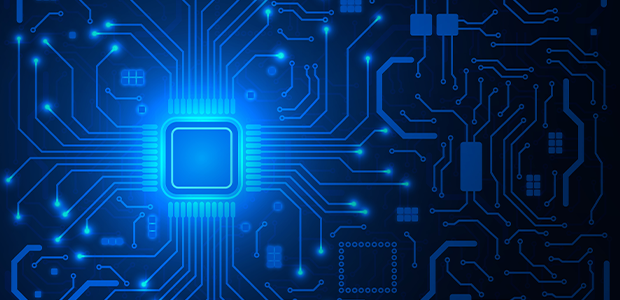
Chiral powers next-generation electronics with nanomaterials as it raises $3.8M
Over the past two decades, chipmaking has emerged as one of the world's most pivotal technologies. The primary catalyst for this remarkable growth has been the continual scaling of silicon technology, often referred to as Moore's Law.
However, as we approach the physical limits of silicon, these advancements are beginning to decelerate. Consequently, the industry has turned its focus towards investing in nanomaterials such as carbon nanotubes, graphene, and TMDs, which hold the promise of delivering chips with unparalleled functionality. Nonetheless, the fabrication of electronic devices using these exceptionally small materials at high speed, with precision, and without sacrificing quality, has posed a significant challenge.
Chiral, a nanotechnology firm, has announced a £3.8 million funding round aimed squarely at overcoming this hurdle. The company's proficiency in nanotechnology, automation, and high-precision robotics is set to play a crucial role in transitioning the industry from silicon to the forthcoming generation of electronics. The pre-seed funding round was co-led by Founderful (previously known as Wingman Ventures) and HCVC, and also includes grants from ETH Zurich and Venture Kick.
Research has demonstrated the potential and impact of nanomaterials in a variety of electronic applications, including high-performance transistors, low-power sensors, quantum devices, and beyond. However, the predominant production methods, which are largely chemistry-based, lack control, thereby hindering the commercialisation of these devices.
Chiral has developed high-speed, automated robotic machines for integrating nanomaterials into devices. These machines are capable of robotically positioning materials of micrometre or even nanometre size on small chips. Executing these actions quickly and automatically demands an exceedingly high level of engineering. When executed correctly, this approach provides the precision and control absent in traditional chemistry-based techniques.
The inception of Chiral's technology was part of a national research project carried out at the Swiss Federal Institutes of Technology (ETH Zurich, EPFL, and Empa), where the company's co-founders, Seoho Jung, Natanael Lanz, and Andre Butzerin, were involved as PhD students. After four years of research and development, the team completed its first prototype machine, which was 100 times faster than existing systems at that time. The market's immediate response to the prototype, leading swiftly to the acquisition of the company's first batch of pilot customers, persuaded the co-founders of the viability of continuing their endeavours as a business entity. As a result, Chiral was incorporated in June 2023.
Seoho Jung, Co-founder and CEO at Chiral commented: “At Chiral, we are pioneering the next generation of electronic devices across industry. Chipmakers are aware of the potential of nanomaterials and we’re bringing that potential to life. This funding will accelerate the development of our next machine, which will unlock new market opportunities with its versatility and performance. We are also excited to scale our team to keep up with the growing demand and customer base."
The global nanotechnology market size is projected to grow from $79.14 billion in 2023 to $248.56 billion by 2030, at a CAGR of 17.8% (Fortune business insights research). One of the largest chipmakers in the world, Taiwan Semiconductor Manufacturing Company (TSMC) presented its development roadmap showing nanomaterial-based transistors as its future architecture.
Pascal Mathis, Founding Partner at Founderful, commented: “We're thrilled to join forces with Chiral alongside HCVC. Chiral's AI- and robotics-based technology lets us envision a future where nanomaterial-based chips are being produced at the scale needed for commercialization – a major bottleneck up until now. We look forward to supporting Seoho, Natanael and André in their journey to introduce a new paradigm of chips beyond silicon.”
Alexis Houssou, Founding Partner at HCVC, commented: “With the current boom in AI applications, we stand at a pivotal moment where the slowdown of Moore's law threatens to decelerate the pace of technological progress significantly. The team at Chiral has embarked on a critical mission to pave the way toward a groundbreaking post-silicon era, promising to transcend current limitations and unlock new possibilities for advancement. We couldn't be more excited to support their mission, in collaboration with Founderful, as they build the future of computing infrastructure.”
Seoho Jung added: “In the future, it will be normal for electronic devices or chips to contain nanomaterials. The development roadmaps of the world's leading chipmakers like TSMC, Samsung, and Intel all share our vision. We are confident that Chiral technology will empower the industry to make this transition faster."

